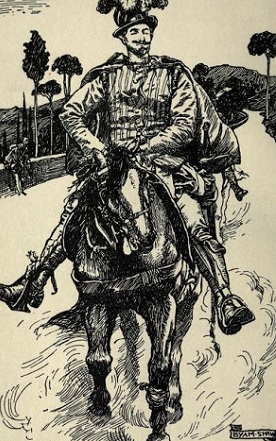| directory |
| home | contact |
|
|||||||||||||||
| search | |||||||||||||||
The Induction and the Two Plots of The Taming of the ShrewFrom The Taming of the Shrew. Ed. Israel Gollencz. New York: University Society.The critics have been very warm and unanimous in praise of Shakespeare's Induction, some, however, wondering and regretting that he did not keep it up to the end of the play, others suspecting that he did so keep it up, but that the continuation has been lost. We are otherwise minded, being convinced that in this as in other things the Poet was wiser than his critics. For the purpose of the Induction was but to start an interest in the play; and he probably knew that such interest, once started, would be rather hindered than set forward by any comings-in of other matter; that there would be no time to think of Sly amidst such a whirlwind of oddities and whimsicalities as he was going to raise. Nevertheless, the regret in question well approves the goodness of the thing; for the better the thing, the more apt men are to think they have not enough until they have too much of it. As to the Induction itself, we confess with Hazlitt, that if forced to give up this or the play we should be not a little puzzled to choose. But then this, no doubt, is partly because the play, though abounding in well-aimed theatrical hits, is one of comparatively little merit. The Induction is wonderfully stuffed with meat, and that, too, of the most savoury quality; the free, varied transpiration of character crowded into it is literally prodigious for so small a space. And yet how the whole thing swims in a stream of the most racy and delicate humour and therewithal has a light aerial grace, touched occasionally with the richest colours of poetry, hovering over it; all, together, making it one of the most expressive and delectable things we shall anywhere find. The two plots of the play, as Johnson observes, are skilfully interwoven, so as to give a wide variety of comic incident, without running into perplexity. And such variety was the more needful here, forasmuch as the interest turns in a very unusual degree upon the incidents; though the thought and speech are everywhere sprightly and brisk enough. For if the dialogue seldom rise to poetry, it never becomes vapid and fiat, these being qualities of which Shakespeare was hardly capable. As to Bianca and the proceedings of her suitors, they seem of little consequence anyway save as helping to make up an agreeable variety of matter. Bianca apparently has not force of character enough to do anything wrong, else she had probably been as naughty as her sister. Hudson: The Works of Shakespeare How to cite this article:____ Related Articles |

|
©1999-2021 Shakespeare Online. All Rights Reserved.